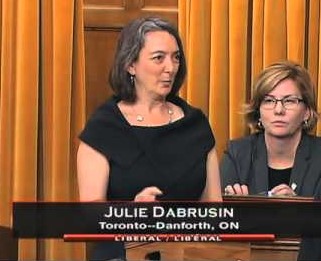By
April 27, 2021
-Western Standard
The Liberal government denies they want to regulate all the Internet – just a little bit, says Blacklock’s Reporter.
“As much as we’re trying to work through this bill to try to bring in web giants, the plan is not for us to regulate all of the Internet,” said Liberal MP Julie Dabrusin (Toronto-Danforth), the parliamentary secretary for Canadian heritage, following a heritage committee vote to control YouTube content.
“That is not the intention.”
Dabrusin told the committee cabinet was wary of “great overbreadth of powers we intend to give the
Canadian Radio-television and Telecommunications Commission (CRTC) and where we intend to go with this.”
Bill C-10 proposes to regulate Internet video streaming services like Netflix. The bill reverses a 1991 policy endorsed by successive cabinets against regulation of Internet content.
Members of the Commons Heritage committee on April 23 voted to subject YouTube to oversight by the CRTC.
But Conservative MPs on Monday described the vote as dangerous overreach.
“Bill C-10 is a bad piece of legislation giving too much power to the CRTC to regulate the Internet and provides no clear guidelines for how that power will be used,” MP Alain Rayes (Richmond-Arthabaska, Que.), Conservative heritage critic, said in a statement.
“Liberals went further than ever before.”
“This is another unacceptable attempt to target the freedoms of individual Internet users,. There could be no clearer proof Liberals are not just going after large foreign streaming services, they are also targeting ordinary Canadians.”
The Department of Canadian Heritage said YouTube management, not individual users, would be responsible for ensuring uploaded videos comply with the Broadcasting Act.
Bill C-10 states regulated broadcasters, including YouTube, must ensure programming “serves the needs and interests of all Canadians including Canadians from racialized communities and Canadians of diverse ethnocultural backgrounds, socio-economic statuses, abilities and disabilities, sexual orientations, gender identities and expressions,” and “reflect their circumstances and aspirations including equal rights.”
The bill also grants the CRTC first-ever powers to levy fines of up to $15 million on scofflaws.
In-house research by the Privy Council Office concluded a majority of Canadians oppose federal regulation of Internet speech.
Asked: “Should the government restrict access to the Internet and social media to combat the spread of misinformation?”
Nationwide, 58% opposed the measure. Opposition ranged as high as 63% in Atlantic Canada, 62% in British Columbia and 61% in Alberta.




